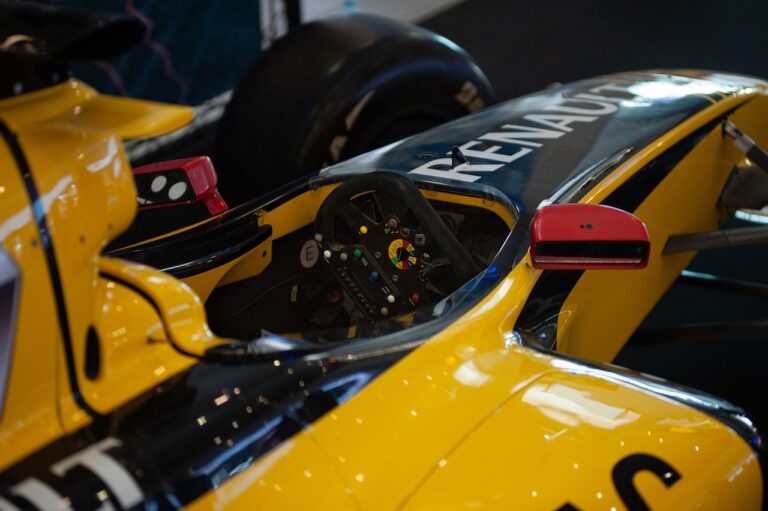The Future of Car Interior Personalization: Market Analysis: Allpaanel mahadev book, Mahadev book login id and password, Online cricket id
allpaanel mahadev book, mahadev book login id and password, online cricket id: The future of car interior personalization is an exciting and rapidly evolving market that promises to transform the way we experience our vehicles. As technology advances and consumer preferences shift towards individualization, car manufacturers and aftermarket companies are capitalizing on this trend by offering a wide range of customizable options for car interiors.
In recent years, there has been a growing demand for personalized car interiors, driven by the desire for comfort, style, and functionality. Consumers are no longer satisfied with cookie-cutter designs and are looking for ways to make their vehicles unique to reflect their personality and lifestyle.
Market Analysis
The market for car interior personalization is expected to experience significant growth in the coming years, with a projected CAGR of 5.2% from 2021 to 2026. This growth can be attributed to several factors, including the increasing disposable income of consumers, the rising popularity of luxury vehicles, and the growing awareness of the importance of interior design in the overall driving experience.
One of the key drivers of this market is the development of new materials and technologies that allow for greater customization options. Advances in 3D printing, augmented reality, and smart fabrics have made it easier than ever for consumers to personalize their car interiors according to their preferences.
Another important factor shaping the future of car interior personalization is the rise of electric vehicles (EVs). With the automotive industry increasingly shifting towards electric powertrains, there is a growing focus on creating innovative and eco-friendly interior design solutions that cater to the needs of EV owners.
Furthermore, the emergence of autonomous vehicles presents a unique opportunity for car interior personalization. As self-driving cars become more prevalent, there will be a greater emphasis on creating comfortable and functional interior spaces that cater to the needs of passengers who no longer need to focus on driving.
Overall, the future of car interior personalization is bright, with manufacturers and aftermarket companies poised to capitalize on the growing demand for customizable options that enhance the driving experience.
Key Trends
Innovative Materials: Manufacturers are increasingly using sustainable and high-tech materials such as vegan leather, recycled plastics, and carbon fiber to create unique interior designs that are both stylish and eco-friendly.
Connected Technologies: The integration of smart technologies such as touchscreens, voice recognition, and ambient lighting allows for a more intuitive and personalized driving experience.
Personalized Lighting: LED lighting systems that can change colors and intensity provide a customizable ambiance that can be tailored to suit the driver’s mood or preferences.
Customized Seating: Adjustable and ergonomic seating options with massage functions, heating, and cooling capabilities allow for a more comfortable and personalized driving experience.
Augmented Reality: AR technology is being used to create virtual showrooms where consumers can visualize and customize their car interiors before making a purchase.
Future Opportunities
As the market for car interior personalization continues to expand, there are several key opportunities for companies to capitalize on this trend. These include:
Collaborations with Fashion Designers: Partnering with renowned fashion designers to create unique interior collections that cater to the tastes of fashion-conscious consumers.
Subscription-Based Services: Offering subscription-based services that allow customers to regularly update and refresh their car interiors with the latest design trends and technologies.
Personalized AI Assistants: Integrating artificial intelligence assistants into car interiors that can learn the driver’s preferences and adapt the vehicle’s settings accordingly.
Sustainability Initiatives: Developing eco-friendly interior design solutions that leverage sustainable materials and technologies to reduce the environmental impact of car manufacturing.
Enhanced Customization Tools: Creating online platforms and mobile apps that allow consumers to virtually customize their car interiors and visualize the end result before making a purchase.
Conclusion
In conclusion, the future of car interior personalization is a dynamic and fast-growing market that is poised for continued growth and innovation. With advancements in technology, material science, and design aesthetics, consumers can expect to see a wide range of customizable options that cater to their individual preferences and needs.
As the automotive industry evolves and shifts towards electrification, autonomy, and connectivity, there will be ample opportunities for manufacturers and aftermarket companies to capitalize on the growing demand for personalized car interiors. By staying ahead of key trends, embracing new technologies, and collaborating with industry partners, companies can position themselves as leaders in this exciting and evolving market.
Faqs
1. What are some of the most popular car interior customization options?
Some of the most popular car interior customization options include personalized seating, ambient lighting, custom trim materials, audio upgrades, and smart technology integration.
2. How much does it typically cost to personalize a car interior?
The cost of personalizing a car interior can vary widely depending on the extent of customization and the materials used. Basic customization options can start at a few hundred dollars, while more extensive upgrades can cost several thousand dollars.
3. Are there any limitations to car interior personalization?
While there are many customization options available, there may be limitations depending on the make and model of the vehicle. Some manufacturers may restrict certain modifications to ensure safety and compatibility with the vehicle’s systems.
4. Can car interior personalization affect resale value?
In some cases, extensive customization that deviates from the original design of the vehicle can impact its resale value. However, tasteful and well-executed customization can often add value by enhancing the overall appeal and uniqueness of the car.







